The mark of true intelligence, I once heard, was the ability to hold two contradictory ideas in mind1. I am reminded of this because I face just such a paradox. Every week I say to myself, ‘don’t write anymore about AI,’ and then each week here I am, saying more about it. This week I asked myself - ‘why that would be, what is my core beef, here – the underlying complex steering my hand?’ The best I can come up with is that I feel threatened in a quite particular way, more so than I can cognitively grasp. Though my opponent is formless there is something visceral to my obsession, like a picked-at scab. This is not just the usual, ‘it’s coming for my job, it’s the end of the world’ thing. This is personal. This, tellingly, is not about brains, but feelings.
Mike Hodges 1971 film, Get Carter is full of resonant lines (I can’t say how many are rooted in Ted Lewis’ novel) but it’s significant, I think, in terms of my feelings about AI and more besides, that this is my favourite…
It gets me every time. This is the point where Carter becomes an avatar for wit as much as vengeance, or vengeful wit, perhaps. On some level I think I might have seen this at an early age and felt it replicated a conclusion I had reached many years before I was old enough to see the movie, ‘OK, you can’t beat everyone up but maybe you can outsmart them’… and so the idea of being smart got attached to some kind of revenge project for not being that strong… and now, half a century down the line, when intelligence is there (allegedly) at the touch of the button I feel, I don’t know, like that character in Indiana Jones who is good with his sword, has clearly done 10,000 hours of scimitar work, at least, and then is slain without ceremony by the impudent and foreign hero’s gun.
What then is the future for clever sods? I am asking for myself here, not for a friend - although people used to say to me in pubs that I was the friend they would phone if they were ever on Who Wants to be a Millionaire – although none of those people ever even applied, let alone qualified – such was my domain. I cannot say what will become of smart alecks when there is no capital in being smart, but perhaps we can reckon the future by taking a look at the past and fathom the redundancy of the overdeveloped mind by reflecting on its former perks.
Back in the 1970s and early 80s (before computers wormed their way into the home) the status of intelligence was enshrined in the popular imagination of Britain by the BBC quiz show Mastermind. Despite seldom being off air since its 1972 debut Mastermind was not expected to be a hit and was hidden in a late-night slot until it was drafted into primetime when the Leslie Philips sitcom, Casanova ‘73 (written by Galton & Simpson of Steptoe & Son fame) was pulled from the air following complaints over its “risqué content.” What was the problem? Well, judge for yourself…
Intelligence then was thrown over the ungoverned libido like a blanket, and fifty years later Mastermind is still on. For all Mastermind’s implied intellectual austerity (the title of its famous theme tune is ‘Approaching Menace’) an association with sex and power would remain throughout its heyday in the box design of the its boardgame namesake which preceded the show by a couple of years.
I doubt any child of that era can forget the glaring disparity between the implied Bond villain universe of the packaging and the simplistic plastic reality it contained, but in the landscape of distractions back in the day this thing of pegs and educated guesswork was a global hit. For the budding boy-nerd, the payoff was clear - unlimited power, exotic women, mirrored surfaces. Sadly, I have lost my receipts. For a deep dive on the full range and implications of its packaging click here:
The term ‘mastermind’ skews criminal, a fact that only the Portuguese version seemed to lean into.
The ambivalence of the power that knowledge promised was not the point, certainly not in our house, where Fred Housego’s victory in the 1980 Mastermind final (watched by 18 million people) was treated like a fragment of the true cross. Housego drove a black cab. “Doing the knowledge”(it would transpire twenty years later) increased the size the hippocampus to the point where drivers were at reduced risk of dementia (Waze will not do this for you). In 1980 the punchline was go back to your homework, you are as clever as you want to be.
Housego’s victory, this being Britain, was also steeped in class, and served as a temporary corrective to the antics of Sir David Hunt, an Oxford-educated former colonel, decorated war hero, private secretary to Winston Churchill and high commissioner to Nigeria2 who stormed the title in 1977 and who would then return to reclaim power as ‘Champion of Champions’, in 1982
You can see Frank Bough deferring to him here, as well as The Two Ronnies fiendishly engineered Mastermind spoof:
“I just don’t allow myself to be put off,” or ‘orf,’ says Hunt, which is quite the skill in life, and one he shares with Jack Carter, before telling Frank, “the level of the questions is, on the whole rather low… it is all too easy.” I went head-to-head on general knowledge with Colonel Hunt on YouTube there. He got 12, I got 4. Have a go yourself, he’s quite formidable.
Housego’s assessment of his prowess was more modest, as you might expect, but also tinged with foresight:
“The assumption was that, being a Mastermind, I could have done open heart surgery there and then or deciphered the Rosetta Stone. The truth is that I have no practical skills whatsoever. I knew about history and I knew about literature. Try using that to repair the toaster.”
Nowadays Fred is retired, Sir David is no more and you can buy a toaster with a touchscreen. Those of us still in the game are left to ponder - with all that spare grey matter - what will become of us? I picture a world where the wise are left to ply their trade on the sly, loitering under streetlights, offering to conjugate verbs for people crawling by the kerb in self-driven cars who have perfectly good and loyal computers at home but who still crave something of the old world… much like the backstreet dentists of The Day Today…
Or maybe not. Hope, that very human thing, springs eternal and as I hoist a massive book of the shelf, (Ian MCGilchrist’s ‘The Matter With Things,’ volume one, no less) I see no lesser robot sage than Isaac Asimov suggesting that the great ideas are often accidents and that they often come to groups of people over lunch when they were doing other things. (I told you so).
When the machines start booking out restaurants, then we will know the singularity is at hand. Meanwhile AI feels nothing, I feel outraged. Perhaps the it’s the disparity. Unrequited love is a hell of a thing, but so is unrequited rage3. Ask Jack Carter if you don’t believe me.
The quote is from F Scott Fitzgerald’s essay, The Crack Up, "The test of a first-rate intelligence is the ability to hold two opposed ideas in the mind at the same time, and still retain the ability to function." Yes, I used AI to source this for me…
According to Wikipedia the author Fredrick Forsyth held Hunt partly responsible for Britain’s mishandling of the Nigerian civil war and hence the Biafran famine. Last week Don McCullin told Clive Myrie (who now hosts Mastermind) it was the site of the worst thing he ever saw – which is saying something BBC Radio 3 - Music Matters, Music on the Front Line, Sir Don McCullin
Arguably, in a Kleinian view of infant psychology (and mine - link to book approaching…), they are more or less the same thing.




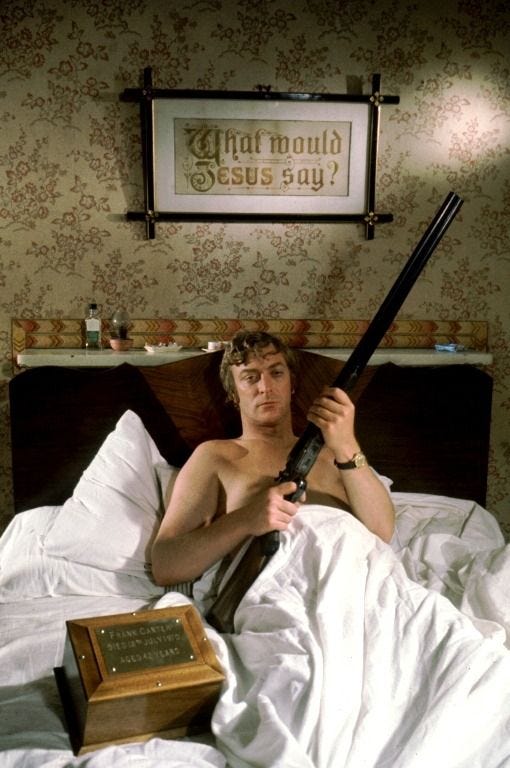
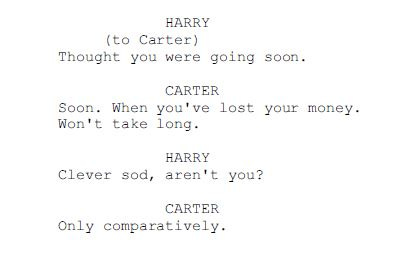
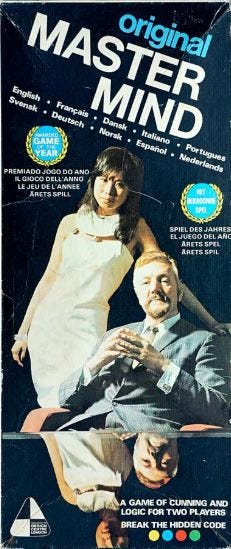
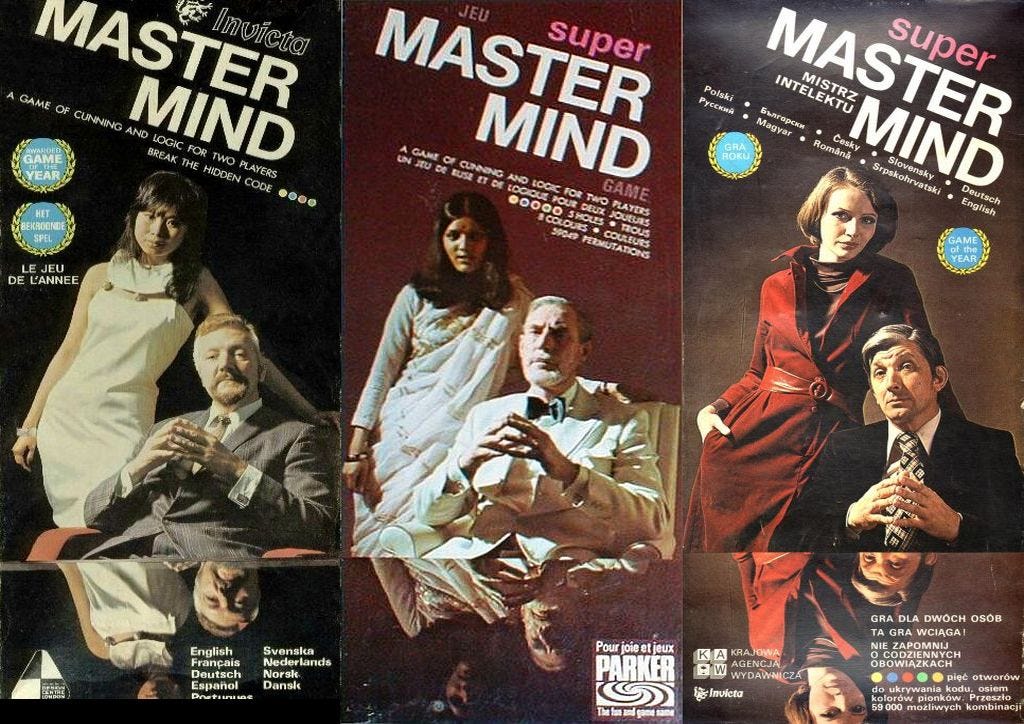

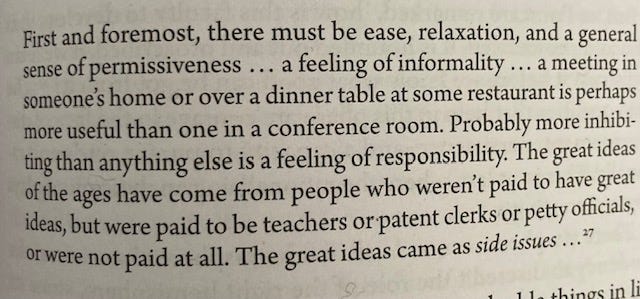
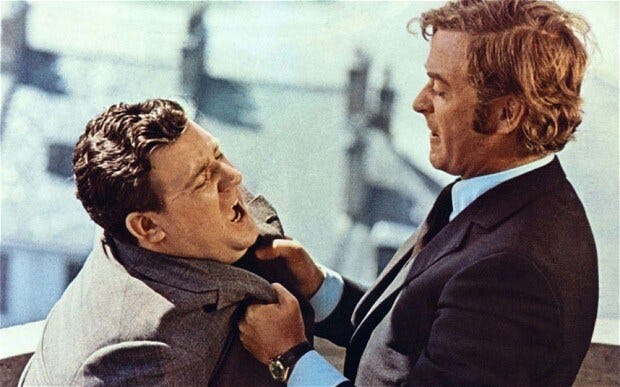
There’s a Nas song called Masterminds in which he also equates intelligence with omnipotence and a carefully planned seizing of a life of luxury and fancy women